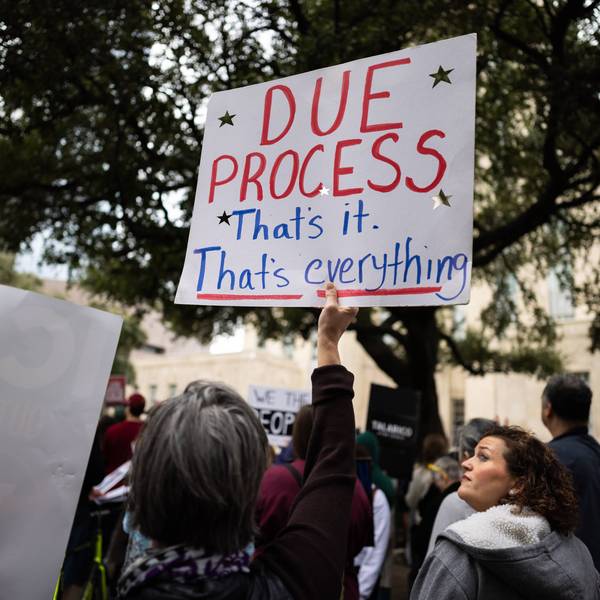The U.S. Department of Justice said Friday that its inspector general's office will investigate the Federal Bureau of Prisons following a judge's excoriation of a warden at a Texas prison who let an inmate waste away from untreated cancer.
"With timely diagnosis and treatment, Mr. Bardell's attesting physician assessed his chances of survival at 71%."
The DOJ said in a statement that its Office of Inspector General (OIG) "is investigating the circumstances surrounding the release from prison and subsequent death of Frederick Mervin Bardell, who was released from the Seagoville Federal Correctional Institution in Seagoville, Texas, on February 8, 2021, and died nine days later."
"In an order dated October 4, 2022, Judge Roy B. Dalton, Jr., in the U.S. District Court, Middle District of Florida, who had previously reviewed Mr. Bardell's petitions for compassionate release, recommended that the attorney general, the OIG, or other appropriate investigative offices undertake an examination into the conditions of Mr. Bardell's confinement and treatment, and alleged misrepresentations to the court," the statement continued.
In his order, Dalton wrote that the Bureau of Prisons (BOP) and Seagoville warden Kristi Zook "should be deeply ashamed of the circumstances surrounding the last stages of Mr. Bardell's incarceration and indeed his life."
According to The Washington Post:
Bardell had served most of a 12-year sentence for distributing child pornography when, in late 2020, he asked for compassionate release from a prison in Seagoville, Texas to receive specialized treatment for colon cancer. Justice Department lawyers argued against his release, saying he could receive adequate treatment in prison and suggesting he might not have cancer, according to court papers.
Months later, Bardell was much sicker and again asked Dalton, an Orlando-based federal judge who presided over Bardell's sentencing, to release him for medical care. This time, the judge agreed and ordered the Bureau of Prisons to create a release plan. Instead, according to the judge, the Bureau of Prisons dumped Bardell on the sidewalk of the Dallas-Fort Worth airport.
Bardell was left without a wheelchair. He was weak and soiling himself with feces and blood throughout his homebound journey to Florida, and after arriving, his parents rushed him straight to hospital, where he died nine days later.
"No individual who is incarcerated by order of the court should be stripped of his right to simple human dignity as a consequence."
"With timely diagnosis and treatment, Mr. Bardell's attesting physician assessed his chances of survival at 71%," Dalton wrote in his October 4 order.
"No individual who is incarcerated by order of the court should be stripped of his right to simple human dignity as a consequence," the judge argued. "The purposes of incarceration, which include rehabilitation, deterrence, and punishment, do not include depriving a human being of the fundamental right to a life with some semblance of dignity."
"The treatment Mr. Bardell received in the last days of his life is inconsistent with the moral values of a civilized society," he added, "and unworthy of the Department of Justice of the United States of America."




